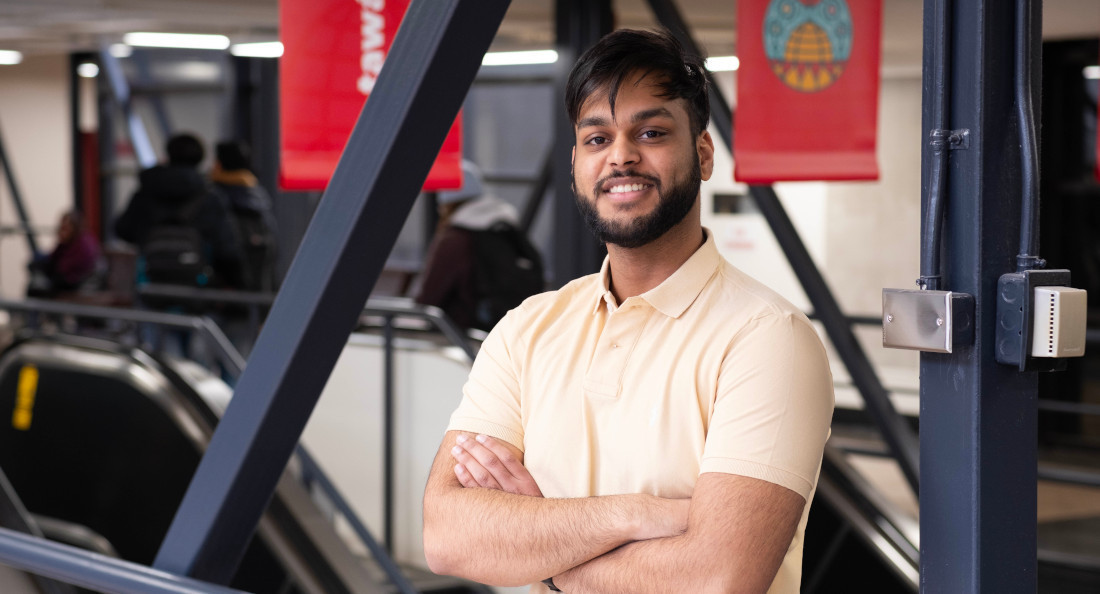Uncertainty, barriers persist for international students
Healthcare access and employability top of mind on U of W campus
The federal government announced a suite of policies affecting international students in late January, including a two-year cap on new study permits. More than a month later, experts and students alike remain uncertain as to how the changes will impact Manitoba.
Dhruv Gupta is a second-year international student at the University of Winnipeg (U of W). He says most of the peers he’s spoken to about the policy changes expect to see a positive impact.
“Right now, they weren’t getting any jobs because there were a lot of students,” Gupta says. He says the changes could make it easier to find employment and work longer hours.
Previously, most international students could only work off campus for 20 hours a week. That cap was temporarily waived in November 2022, and the waiver was extended in this year’s announcement.
In an interview with The Canadian Press, Immigration Minister Marc Miller said more than 80 per cent of international students currently work more than 20 hours a week, but that “it’s not credible that someone can work 40 hours and do a proper program.”
Miller said he plans to permanently raise the cap to “somewhere between 20 and 40 hours a week.”
Gupta says working full-time “does impact our studies, but not that much.” In a survey commissioned by the Canadian Alliance of Student Associations, international students’ self-reported academic performance was stronger than that of domestic students.
Devanshi Patel is an international student studying business at the U of W. She says she understands that the government wants to protect access to housing for both domestic and international students. Nonetheless, she says the decision is “unwelcoming.”
“People want to put their money, put their assets into education, and (the) government wants to restrict it,” she says. Patel was planning to stay in Canada after her degree but is reconsidering now that it’s less clear whether her brother, cousins or a future spouse would be able to get visas.
She says rather than “restricting students,” the government should focus its efforts on ensuring post-secondary programs are preparing young people for the “real world.”
“There are not enough subjects which are covered (in a) one-year diploma,” she says.
“They won’t be able to get (adequate) employment at certain positions. It’s very important, because education shapes individuals.”
Gupta says more needs to be done to make international students aware of the resources they can access, especially when it comes to healthcare.
“For the first one-and-a-half years of my studies, I didn’t know I had GreenShield as a second insurance provider,” he says. “I just thought Blue Cross is everything.”
He says high costs, long wait times and
complicated insurance claims processes lead him and his peers to avoid seeking healthcare from Canadian providers, instead relying on over-the-counter painkillers or asking friends travelling from India to bring medicine.
“Here, you pay a lot for the insurance, and you cannot claim it properly,” he says. “It’s very difficult. I got a bill for $150 just because my insurance was not in effect during that time, then I had to claim it with (GreenShield). It was a mess.”
Published in Volume 78, Number 21 of The Uniter (March 14, 2024)








